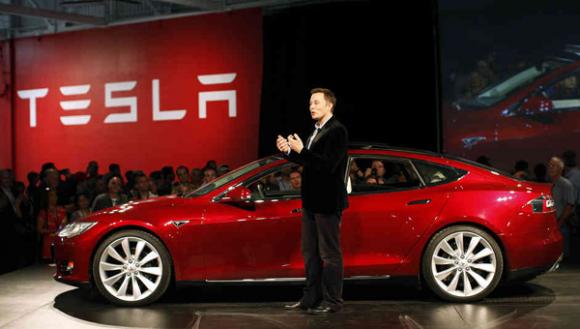
On the 31/07/2016, Tesla Motors Inc opened its new Gigafactory, based in Reno, Nevada. The facility will lower the cost of production by utilizing economies of scale, allowing the firm to generate a profit by selling its recently launched, cheap Model 3 EV. The Model 3 has a starting price of just $35,000 (before any government incentives), although additional features, such as Tesla’s autopilot system, will cost extra.
The Nevada plant will produce lithium-ion batteries (an essential component for Tesla’s electric vehicles.) It is being built with the environment in mind, and it will be powered by renewable sources. In total, it will cost approximately $5 billion to build.
Multiple sources have suggested that Tesla Motors Inc and SolarCity will announce details of their merger at some point today.
CEO of Tesla Motors Inc, Elon Musk, has recently said that he plans to build several new Gigafactories across the world. Specifically, he said “Obviously long term it’s going to make sense to have a Gigafactory in Europe, one in China, and probably one in India. Ultimately, wherever there is a huge amount of demand for the end product, and where the shipping costs are to become significant, then the obvious way to optimize that is to put the Gigafactory on the same continent, or at least within reasonable logistics range of the end customer.”
It will still be at least another few years before Tesla starts opening more facilities like this, as the one in Nevada is still far from complete. As the car maker moves into the mass market, the will need to greatly increase the number of batteries that they produce, potentially placing strain on the world’s lithium supplies.
As the markets closed on the 29/07/2016, Tesla Motors Inc’s stock had gained by 1.81%, or $4.18 (on the day.) A share in the firm is currently valued at $234.79, giving the corporation a market cap of $34.87 billion.




